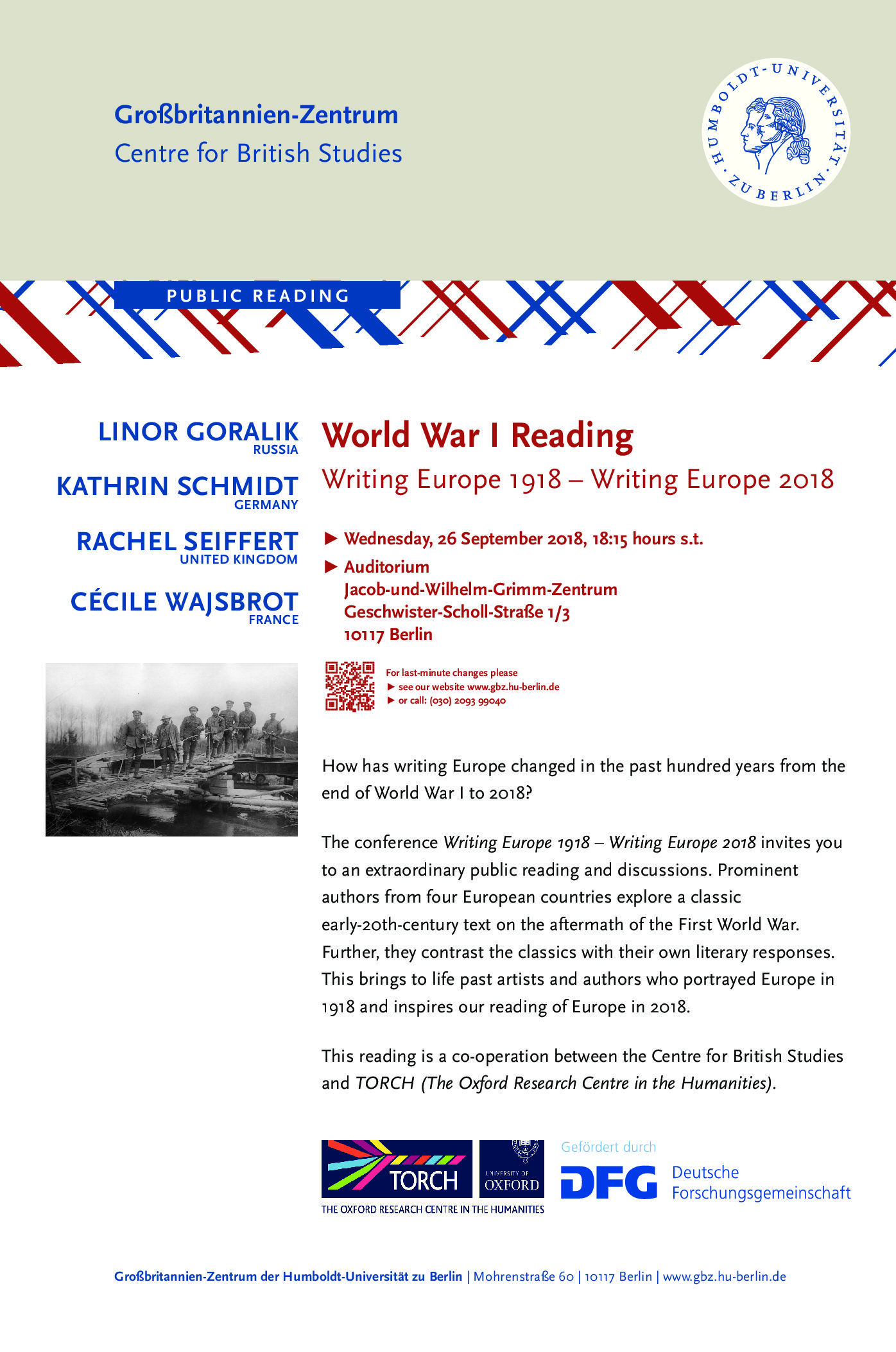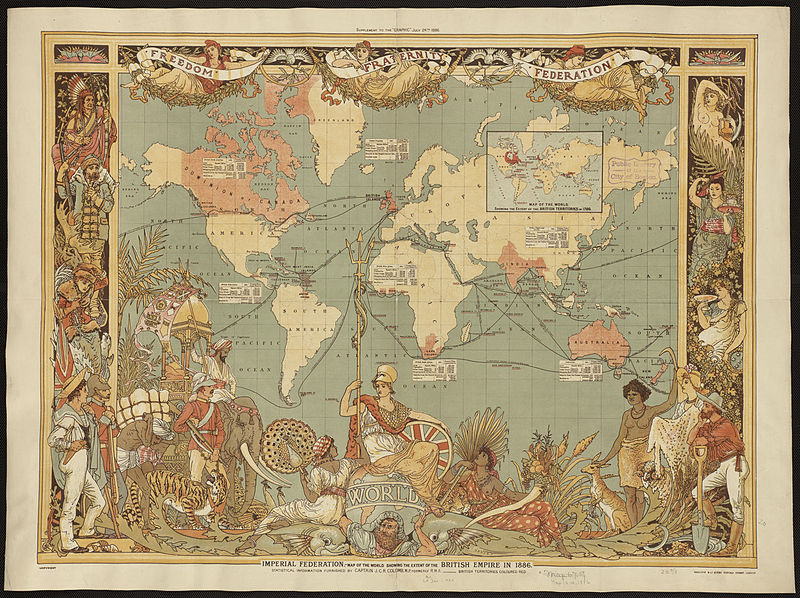The Centre for British Studies and The Oxford Centre for the Humanities (TORCH) have co-organised an international conference on the aftermath of World War I and how writers and artists responded to the challenge of re-imagining Europe and re-building networks.
The conference will begin with a public reading on 26 September 2018, 6.15pm, with authors from Russia, Germany, France, and England reading from classic early-20th-century texts as well as from their own work.
For more details please see the poster.
The updated conference programme can be found here: https://www.gbz.hu-berlin.de/




